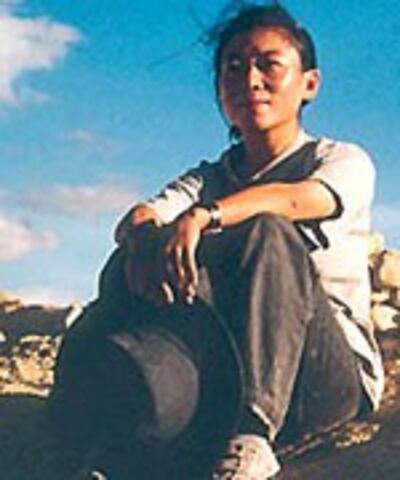
HONG KONG, March 21, 2008--Authorities in Beijing have been holding Tibetan writer Tsering Woeser and her Chinese husband under house arrest in the capital since the beginning of the recent anti-Chinese protests in Tibetan regions of the country, her husband told Radio Free Asia (RFA).
"She has been under house arrest since March 10," Tsering Woeser's husband, Han Chinese author Wang Lixiong said.
"Her movements are restricted, as are mine. In the past, I was their main target. But now she has become part of the target," he told RFA's Mandarin service.
"Whatever movements we plan to make, we must first ask for approval. Only when it's approved by higher-ups can we make a move under surveillance," he said.
Wang said Tsering Woeser, who goes by a single name, had been confined to the couple's Beijing home since March 10, the 49th anniversary of a Tibetan uprising against Chinese rule in 1959.
Our government has indicated that it would engage in a dialogue with the Dalai Lama if he renounces independence. But the Dalai Lama has said that he renounces independence, so why doesn't the government engage in a dialogue with him?
Both Tsering Woeser and her husband, Wang, contribute regular commentary to RFA’s Tibetan service.
Tsering Woeser declined to speak to reporter Ding Xiao, saying it was "inconvenient," a phrase which is often used in China to indicate a fear of reprisals from the authorities.
Tsering Woeser, 40, is a well-known writer of Tibetan origin who writes mostly in Chinese. She is the author of 10 volumes, including one book of collected poems, a prose volume titled Tibet Journal, and two books on the 1966-76 Cultural Revolution. Most of her work is banned inside China.
Last year, the Chinese authorities blocked her blogs after she published a photo of Tibet's exiled leader, the Dalai Lama, on one of them.
"Our government has indicated that it would engage in a dialogue with the Dalai Lama if he renounces independence," Wang Lixiong said. "But the Dalai Lama has said that he renounces independence, so why doesn't the government engage in a dialogue with him?"
"Then the government says even though he has renounced independence he is engaged in 'independence in disguise.' So there is no standard by which to judge. He is always portrayed in a bad light. What is he to do?"
Call for talks
Around 2,000 Tibetan protesters in the western province of Qinghai on Thursday staged a peaceful protest calling on Beijing to open talks with the Dalai Lama, and to allow him to return to visit his people.
China has announced a "people's war" on "splittists" whom it blames for orchestrating the rioting which swept through the Tibetan capital last week, when crowds of anti-Chinese protesters tore through the city, burning shops and cars and attacking anything connected to China.
A Tibetan living in Lhasa said Beijing overreacted to a standoff between Tibetans and police outside a major temple in the city.
"They over-reacted," he said. "It did not start out as riots. I heard that it started out as a gathering at a temple with a lot of people. They dispatched troops from Sichuan and surrounded the temple so no one could go in or out."
"It was only then that the herdsmen, the lamas, and the students began to protest. And then clashes and deaths occurred."
A spokesman for the Tibetan government-in-exile in the northern Indian town of Dharamsala denied the Dalai Lama was behind the protests.
"The protests were not coordinated, so no one had any control over them," he said. "We regret that they became violent. The Dalai Lama has always been against violence."
Original reporting by Ding Xiao for RFA’s Mandarin Service. Mandarin service director: Jennifer Chou. Translated by Jennifer Chou. Produced and edited in English by Luisetta Mudie and Sarah Jackson-Han.
